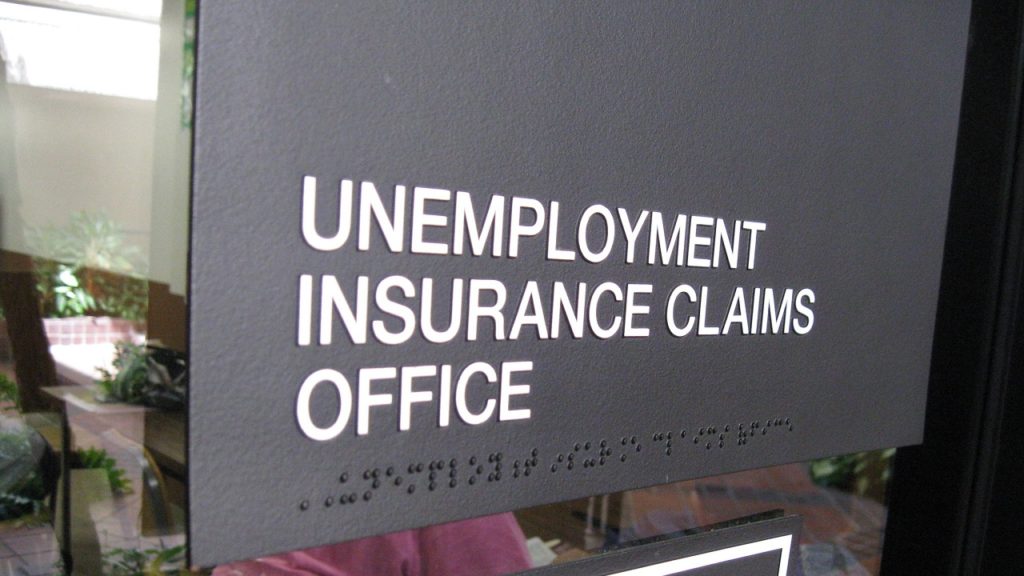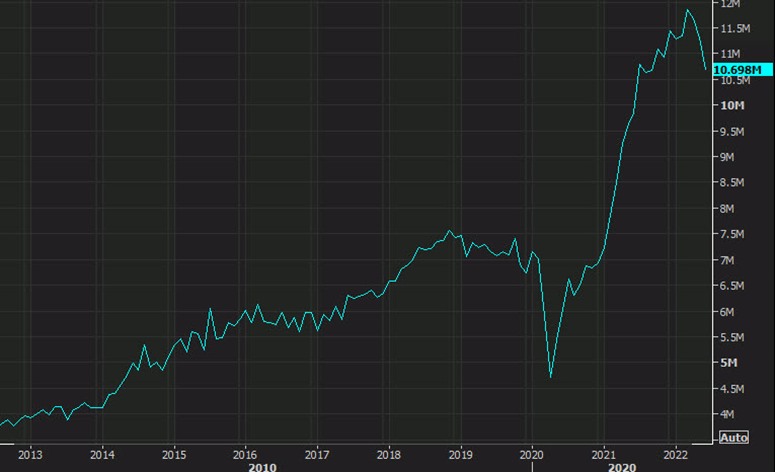Labor Market Showing Cracks As Job Openings Decline More Than Expected

Despite back-to-back contractions in GDP, President Joe Biden, Fed Chair Jerome Powell, Treasury Secretary Janet Yellen and all of their supporters in the corporate media insist the US economy isn’t in a recession. But the only data they ever point to in order to back up their assertion is the “strong” labor market.
The problem with this spin is the labor market is a lagging indicator and it’s starting to show cracks.
Job openings fell more than expected in June.
According to the Job Openings and Labor Turnover Survey (JOLTS report), job openings fell by 605,000 to 10.7 million as of June 30. The forecast was for 11 million vacancies.
While job openings remain at an elevated level, the trend is clearly downward.

In fact, it appears job openings are about to fall off a cliff.
Meanwhile, first-time unemployment claims are trending upward. Weekly jobless claims were above expectations again last week, falling a mere 5,000 from the previous week’s 8-month high. In fact, the 256,000 initial claims last week would have been an increase except for the fact that they revised the previous week’s number up to 261,000. More significantly, the 4-month moving average rose by about 8,000 claims.
We saw a surge in job openings as the economy opened up after the government shutdowns for the pandemic. Many people never went back to work. The labor participation rate remains low at 62.2%. That created an extremely tight labor market. Even with an economic slowdown clearly underway, it will take a while for the labor market to loosen up. But that’s clearly happening.
It won’t be long before the Biden administration and the central bankers at the Fed can’t point to the “strong” labor market anymore. As Peter Schiff said in an interview with Megyn Kelly, the increase in unemployment is coming.
People who are pointing to the low unemployment rate and saying this means we’re not in a recession, that’s nonsense. Unemployment is a lagging indicator. The unemployment rate is going to rise as the recession continues.”
Schiff argued further that the current labor market isn’t as strong as everybody claims.
We have a very weak labor market. Real wages are collapsing. Wages have never really fallen this much in real terms in history. That is a weak labor market. When you have a strong labor market, workers can demand raises. They have power. They can go to their bosses and say, ‘I want more money or I’m going to quit and take another job.’ That’s not happening. In fact, a lot of workers are taking second jobs and third jobs because they can’t make ends meet on their main job. That is a weak labor market.”
More By This Author:
Total Household Debt Hit A Record $16 Trillion In Q2Gold Demand Up 12% Through First Half of ’22 Despite Tepid Second Quarter
The “Inflation Reduction Act” Will Do The Exact Opposite



